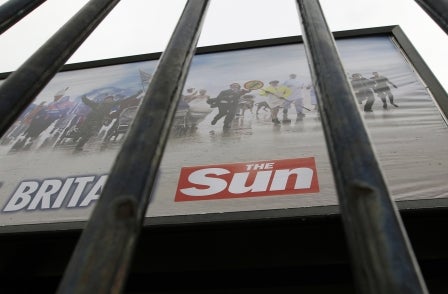
A report has found that 63 per cent of people believe the public should have more of a say in the regulation of the UK media
Research by the Carnegie UK Trust also found that 71 per cent want to see an independent regulator in place to adjudicate on press complaints and 77 per cent want an independent regulator involved in setting guidelines
The report, 'Voicing the Public Interest: listening to the public on press regulation' (a joint project by the Trust and the think tank Demos), also found that 63 per cent of people mistakenly believe Parliament is already involved in setting guidelines for the media on what defines the public interest.
A representative poll of 2,000 members of the public were given 90 different scenarios to explore public attitudes toward free speech, privacy and investigative journalism. It found that of those 90 scenarios only 15 had “a majority of the public approving publication”.
Examples included:
- Just 29 per cent supported the publication of a kiss and tell story about a sports star or actor, using information gained through interviewing friends and neighbours.
- Only 41 per cent support publication of a story about a FTSE 100 director making money illegally, with information for the story gained from going through the dustbins outside of a house.
- Less than half (46 per cent) of the public supported publication of a story about an elected politician putting others at risk, with information for the story gained from going through the dustbins outside of a house.
- 40 per cent believe that stories should ‘never’ be published if they draw on information gained through illegal entry into premises.
Carnegie said the research was evidence that “the public can no longer be excluded from defining ‘the public interest’ in media regulation”.
Chief executive Martyn Evans said: “The nation was outraged by the intrusion into the lives of 'normal' people, like Milly Dowler's family during the phone hacking scandal, and an overwhelming sense that the press have, in some cases, gone too far. But this national debate has been taking place without information about where normal people would draw the line between what is and is not acceptable in the name of the 'public interest’. This report addresses that deficit.
“We carried out this research to find out where the public see the balance and were struck by the findings which show they are, in general, far more reluctant to publish than the media and other commentators expect, especially where there has been a significant level of intrusion into the subjects lives.”
He added: “The most important element of our report is that the public want to be involved: they want to have a voice in press regulation. They are not content with a system of self-regulation whereby editors and journalists set the guidelines on what is acceptable in the public interest.
“In adjudicating on complaints, they are most positive about an independent regulator funded by government but again, the majority want a clear role for the general public in the process.”
The report was also said to reveal “strikingly low levels of trust” with only one in ten of those surveyed expecting The Sun to behave ethically and 12 per cent for the Daily Mirror. The highest ethical approval rating was given to the Financial Times at 55 per cent.”
Duncan O’Leary, deputy director of Demos and a co-author or the report, added: “Journalists need much more clarity on how public interest judgements will be reached – for their own sake and that of the public. Until that is made much clearer, investigative journalism risks becoming either too timid or too intrusive to serve the public interest.
“Above all the public need to brought into the conversation. Newspapers should become more transparent, so that readers know how stories have been acquired wherever possible. And regulators must become much more open and accountable, so that that the public can scrutinise the judgements made in their name.”
Email pged@pressgazette.co.uk to point out mistakes, provide story tips or send in a letter for publication on our "Letters Page" blog
